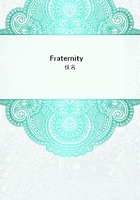
第21章
Cecilia returned to her scattered thoughts. They lay there still, with a gleam of sun from the low window smearing their importance;she felt somehow that it did not now matter very much whether she and Stephen, in the interests of science, saw that man fall from his balloon, or, in the interests of art, heard Herr von Kraaffe sing his Polish songs; she experienced, too, almost a revulsion in favour of tinned milk. After meditatively tearing up her note to Messrs. Rose and Thorn, she lowered the bureau lid and left the room.
Mounting the stairs, whose old oak banisters on either side were a real joy, she felt she was stupid to let vague, sordid rumours, which, after all, affected her but indirectly, disturb her morning's work. And entering Stephen's dressing-room she stood looking at his boots.
Inside each one of them was a wooden soul; none had any creases, none had any holes. The moment they wore out, their wooden souls were taken from them and their bodies given to the poor, whilst--in accordance with that theory, to hear a course of lectures on which a scattered thought was even now inviting her--the wooden souls migrated instantly to other leathern bodies.
Looking at that polished row of boots, Cecilia felt lonely and unsatisfied. Stephen worked in the Law Courts, Thyme worked at Art;both were doing something definite. She alone, it seemed, had to wait at home, and order dinner, answer letters, shop, pay calls, and do a dozen things that failed to stop her thoughts from dwelling on that woman's tale. She was not often conscious of the nature of her life, so like the lives of many hundred women in this London, which she said she could not stand, but which she stood very well. As a rule, with practical good sense, she kept her doubting eyes fixed friendlily on every little phase in turn, enjoying well enough fitting the Chinese puzzle of her scattered thoughts, setting out on each small adventure with a certain cautious zest, and taking Stephen with her as far as he allowed. This last year or so, now that Thyme was a grown girl, she had felt at once a loss of purpose and a gain of liberty. She hardly knew whether to be glad or sorry. It freed her for the tasting of more things, more people, and more Stephen;but it left a little void in her heart, a little soreness round it.
What would Thyme think if she heard this story about her uncle? The thought started a whole train of doubts that had of late beset her.
Was her little daughter going to turn out like herself? If not, why not? Stephen joked about his daughter's skirts, her hockey, her friendship with young men. He joked about the way Thyme refused to let him joke about her art or about her interest in "the people."His joking was a source of irritation to Cecilia. For, by woman's instinct rather than by any reasoning process, she was conscious of a disconcerting change. Amongst the people she knew, young men were not now attracted by girls as they had been in her young days. There was a kind of cool and friendly matter-of-factness in the way they treated them, a sort of almost scientific playfulness. And Cecilia felt uneasy as to how far this was to go. She seemed left behind.
If young people were really becoming serious, if youths no longer cared about the colour of Thyme's eyes, or dress, or hair, what would there be left to care for--that is, up to the point of definite relationship? Not that she wanted her daughter to be married. It would be time enough to think of that when she was twenty-five. But her own experiences had been so different. She had spent so many youthful hours in wondering about men, had seen so many men cast furtive looks at her; and now there did not seem in men or girls anything left worth the other's while to wonder or look furtive about. She was not of a philosophic turn of mind, and had attached no deep meaning to Stephen's jest--"If young people will reveal their ankles, they'll soon have no ankles to reveal."To Cecilia the extinction of the race seemed threatened; in reality her species of the race alone was vanishing, which to her, of course, was very much the same disaster. With her eyes on Stephen's boots she thought: 'How shall I prevent what I've heard from coming to Bianca's ears? I know how she would take it! How shall I prevent Thyme's hearing? I'm sure I don't know what the effect would be on her! I must speak to Stephen. He's so fond of Hilary.'
And, turning away from Stephen's boots, she mused: 'Of course it's nonsense. Hilary's much too--too nice, too fastidious, to be more than just interested; but he's so kind he might easily put himself in a false position. And--it's ugly nonsense! B. can be so disagreeable; even now she's not--on terms with him!' And suddenly the thought of Mr. Purcey leaped into her mind--Mr. Purcey, who, as Mrs. Tallents Smallpeace had declared, was not even conscious that there was a problem of the poor. To think of him seemed somehow at that moment comforting, like rolling oneself in a blanket against a draught. Passing into her room, she opened her wardrobe door.
'Bother the woman!' she thought. 'I do want that gentian dress got ready, but now I simply can't give it to her to do.'